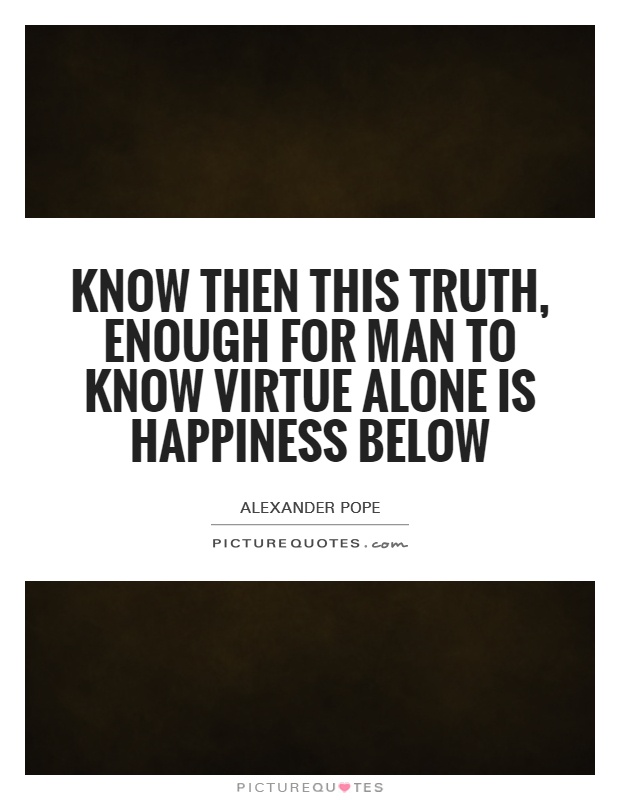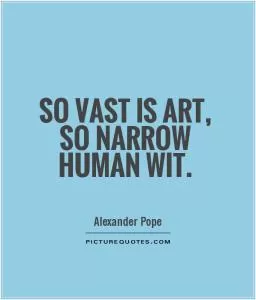Know then this truth, enough for man to know virtue alone is happiness below

Know then this truth, enough for man to know virtue alone is happiness below
In the realm of 18th-century English literature, Alexander Pope stands out as one of the most influential and revered poets of his time. Known for his satirical wit and keen observations on human nature, Pope's works often delve into themes of morality, virtue, and the pursuit of happiness. One of his most famous lines, "Know then this truth, enough for man to know virtue alone is happiness below," encapsulates his belief in the intrinsic connection between virtue and true happiness.Pope's assertion that virtue alone is the key to happiness below reflects his deep-rooted belief in the importance of moral integrity and ethical behavior. In a world filled with greed, corruption, and deceit, Pope saw virtue as a rare and precious quality that could bring true contentment and fulfillment to individuals. By living a life guided by principles of honesty, compassion, and integrity, one could achieve a sense of inner peace and satisfaction that material wealth and worldly success could never provide.
Furthermore, Pope's emphasis on virtue as the foundation of happiness below can be seen as a critique of the superficial values and shallow pursuits that often dominate society. In a world where status, power, and wealth are often equated with success and happiness, Pope reminds his readers that true fulfillment comes from living a life of virtue and moral goodness. By prioritizing ethical behavior and personal integrity over material gain and social recognition, individuals can cultivate a sense of inner peace and contentment that transcends the fleeting pleasures of the world.
Pope's belief in the power of virtue to bring happiness below is also rooted in his understanding of human nature and the complexities of the human experience. Through his poetry, Pope explores the struggles and challenges that individuals face in their quest for happiness and fulfillment. By highlighting the importance of virtue as a guiding principle in navigating life's obstacles and temptations, Pope offers his readers a timeless lesson in the enduring value of moral integrity and ethical behavior.












 Friendship Quotes
Friendship Quotes Love Quotes
Love Quotes Life Quotes
Life Quotes Funny Quotes
Funny Quotes Motivational Quotes
Motivational Quotes Inspirational Quotes
Inspirational Quotes